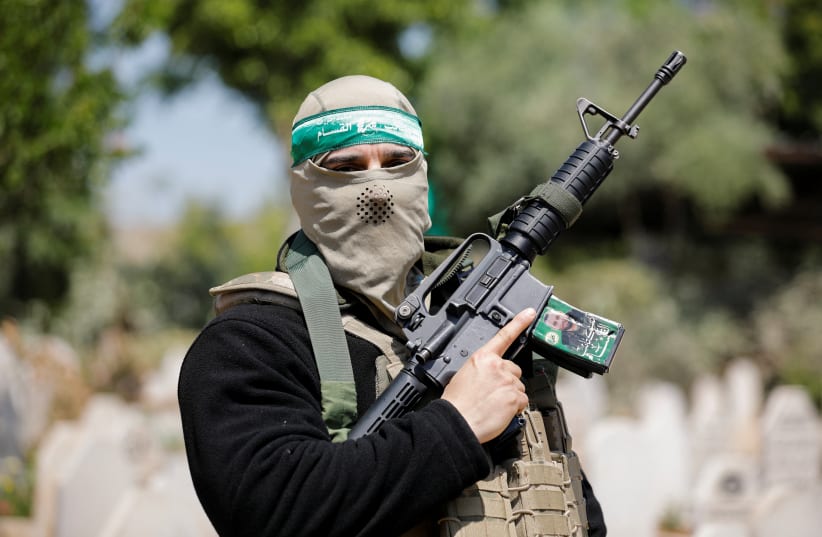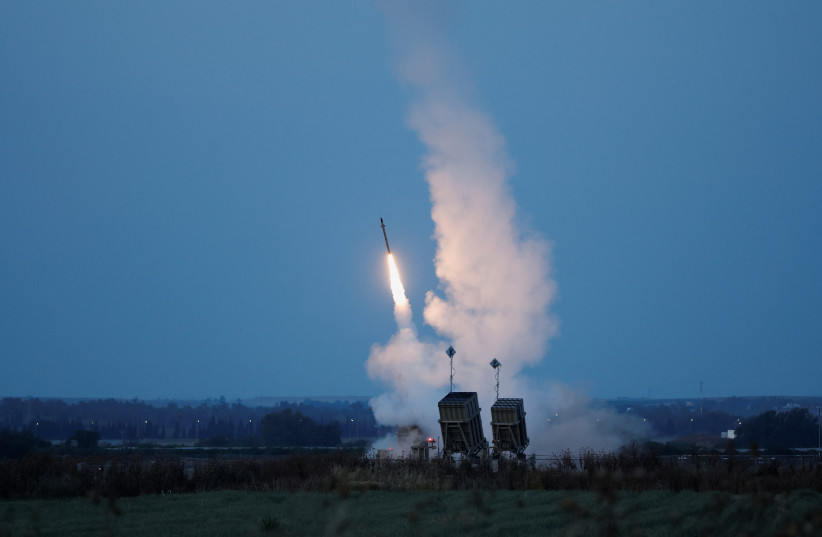The waiting can kill you. On Tuesday morning, just after 2 a.m., the IAF attacked in Gaza, killing three senior Islamic Jihad terrorists and hitting the group’s infrastructure hard.
The country has seen this movie many times before, so after waking up and hearing the news of the attack in the media, it readied for the counterblow – in the form of rockets flying across from Gaza – at any minute.
Except the rockets didn’t come across from Gaza.
They didn’t come at noon; they didn’t come, as some expected, after the funerals of those slain in Gaza; they didn’t come during Prime Minister Benjamin Netanyahu’s prime-time address at 9 p.m. Nor did they come exactly 24 hours later at 2 a.m.
Even as the rockets from Gaza tarried, the talking heads in Israel talked. And talked and talked and talked on the radio and on television.
They talked about why Islamic Jihad was not firing rockets and when they would. They speculated whether Islamic Jihad was unable to give an automatic response because they were taken completely by surprise, or whether the delay was because they were trying to convince Hamas to join the fighting, or whether they were just trying to wear Israel down by delaying. They talked about whether Hamas would join the fray or stay out.
They talked of people living in communities around Gaza moving out of their homes, of school closures, of empty streets, of canceled bus lines, closed train stations and traumatized children. Islamic Jihad did not have to fire a single shot; the very expectation of their response paralyzed the nation.
“Israel was stricken by panic,” said Islamic Jihad spokesman Daoud Shehab. “The bomb shelters are open, Iron Dome is deployed, roads and public space are closed. This exhausts Israel and is part of our response.”
Media turns to emergency mode
It is completely understandable why the government canceled school in communities near the Gaza border and closed roads running near the border fence. Israel does not want to provide easy targets for the terrorists.
It is equally understandable why people living near the border with Gaza wanted to leave their homes and take their children to safer places elsewhere in the country. Not only is that understandable, but it is the responsible thing to do.
But is it necessary for the country to work itself up into a tizzy by talking incessantly about how tense everything is and how afraid people are?
Events like the IAF attack in Gaza reflexively trigger the media to go into emergency mode, with the radio and television stations providing “special” round-the-clock coverage focused exclusively on the story. What was broadcast without end on Tuesday was speculation about when the other shoe would drop, describing how tense people were waiting for that shoe to drop, and how everything in the Western Negev was shut down.
While such coverage is natural, it only increases anxiety in Israel and gives the terrorist organizations the satisfaction of knowing that they can disrupt life in the country and bring large swaths of it to a near standstill without taking any action. This is psychological warfare, and it provides the terrorists with a psychological victory.
Israel has weathered tense waiting periods before, far worse than what it experienced on Tuesday, most famously in the three weeks leading up to the Six Day War, during which Egyptian president Gamal Abdel Nasser deployed troops near the border with Israel, kicked UN peacekeeping troops out of Sinai and closed the Straits of Tiran.
Tuesday’s anxiety was but a faint echo of the tension during that period, a period that merits its own name, Tkufat HaHamtana (The Waiting Period). Yet the feeling is the same: The country knows something bad is going to happen; it just doesn’t know exactly when.
In 1967, Israel decided to preempt, rather than wait for the enemy to attack. And the result was the lightning victory of the Six Day War.
On Wednesday, Israel also decided not to wait around anymore and let the terrorist organizations set the pace of the action. At 11:38 a.m, the IDF took the initiative and hit an Islamic Jihad terrorist on his way to firing a rocket at Israel. An hour later, it hit more rocket launchers. An hour after that, Islamic Jihad finally began its barrage of hundreds of rockets fired on Israel.
While the terrorist organization may have wanted to wait longer to further “exhaust” Israel, once the IDF hit again and again, it had no other choice but to respond. In other words, Israel drew Islamic Jihad out.
There was wisdom in the IDF action. The endless waiting game did not serve Israel’s interests. Israel had to do one of two things: Either send an unmistakable message to the other side that if they attacked they would be pounded mercilessly, or preempt. Netanyahu opted to preempt.
In this way, psychological warfare ended, and the rocket warfare began.
psychological warfare ended, and the rocket warfare began
Although rocket warfare is inestimably more dangerous and lethal – even with the technological miracle called the Iron Dome shooting down most of the rockets – in a certain sense, it is easier to deal with psychologically because it is predictable; the country is used to it; the nation knows the drill.
They fire at us, we fire back at them, and this goes on for a number of hours or even days until the Egyptians step in and broker a ceasefire – until the next time.
There is something comforting in predictability and knowing what to expect. Everyone knows what we will do, what they will do, and how the story ends.
True, it is horribly life-disrupting, emotionally draining and downright frightening. But it is predictable. It is known.
On Tuesday, when Islamic Jihad did not fire rockets as expected, Israel was in unknown territory. On Wednesday, when the terrorist organization did fire off their rockets, Israel entered more familiar ground. What a paradox: The unknown and unpredictable, in this case, felt more discombobulating at a national level than the predictable and known.

